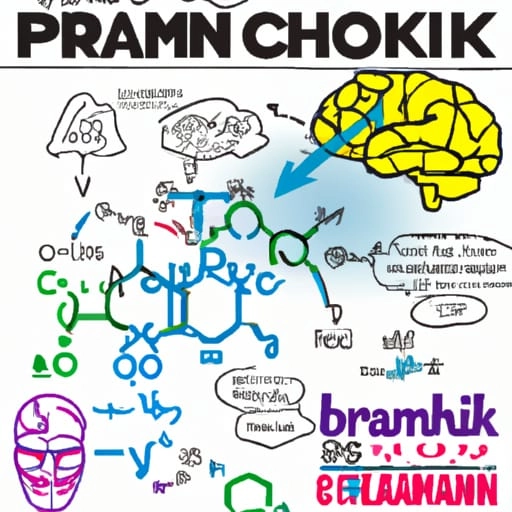Can You Donate Eggs With Depression?

Introduction To The Question of Donating Eggs With Depression
Can you donate eggs with depression? Yes, but.
Egg donation is a complicated and emotional subject, and it can be especially hard for people with mental health problems like depression. People with depression may wonder if they can donate their eggs and, if so, what the process might be like. In this blog post, we’ll talk about whether or not someone with depression can donate eggs and what potential donors should think about when deciding whether or not to go through with the egg donation programs.
What Does Depression Feel Like?
First of all, let’s make sure we know what we’re talking about when we say ‘depression’. Depression is a mental illness that causes a person to feel sad and hopeless most of the time and to lose interest in things they used to enjoy. It can also make you tired, change your appetite or sleep schedule, or make it hard to concentrate. Depression can be a very serious and debilitating illness that can have a big effect on a person’s quality of life.
Major Depressive Disorder is one of the most common serious mental health disorders.
Egg Donation v Surrogacy
Egg donation and surrogacy are two different ways that people or couples can get help having a child. Here’s a quick look at how egg donation and surrogacy are different:
Egg donation:
Egg donation is when a woman’s eggs are taken out of her ovaries and given to another person or couple for fertility treatment or research. In a lab, the sperm donor’s sperm is mixed with the donor’s eggs to make an embryo. The embryo is then placed in the recipient’s uterus, and she carries the pregnancy to term. The egg donor has nothing more to do with the pregnancy or the care of the child.
Surrogacy:
There are two types of surrogacy: traditional surrogacy, in which the surrogate is also the biological mother of the child, and gestational surrogacy, in which the gestational carrier carries an embryo made from the egg and sperm of the intended parents and fertilised in a lab using in vitro fertilization (IVF) most of the time. In gestational surrogacy, the woman who carries the child does not have a biological link to the child.

Screening For The Egg Donation Process
Before donating eggs, the egg donation program will insist a potential donor woman will typically undergo a thorough medical screening and psychological evaluation to ensure that she is in good health and emotionally ready to donate eggs. They will ask put you through the following medical tests to see whether you can become part of their egg donor program, and even if you pass that screening process and meet the medical requirements they will then ask about your mental health.
Here’s what to expect:
- Physical examination: A physical examination to assess your overall health and to determine if you are physically fit to undergo the egg retrieval procedure.
- Blood tests: A series of blood tests to evaluate your hormone levels, screen for infectious diseases, and assess your overall health.
- Genetic testing: Testing to determine if you have any genetic disorders that could be passed on to the recipient of your eggs.
- Psychological evaluation: A psychological screening to ensure that you are emotionally ready to donate eggs. They will take a mental health history to determine if you have any mental health conditions that could affect your ability to donate. Contraindications include serious mental illnesses such as schizophrenia, bipolar disorder or personality disorders and might rule you out.
- Family medical history: A review of your family medical history to assess your risk for certain genetic conditions that could be passed on to the recipient of your eggs.
- Reproductive history: A review of your reproductive history, including any previous pregnancies, miscarriages, or abortions.
- They may ask your sexual history and whether you have had an STD. They will check whether you have HIV or Herpes, syphilis or Hepatitis B.
- They will want to know your smoking status as a non-smoker is considered a healthier donor. The same is true for alcohol intake. These both pose a higher risk of an unsuccessful pregnancy.
- and they will measure weight and height to calculate your body mass index (BMI) as obesity can be a problem in pregnancy.
- They will check you for Polycystic ovary syndrome (PCOS), also called polycystic ovarian syndrome, is a common health problem caused by an imbalance of reproductive hormones. It is more common in overweight women.
- They will question you to rule out any history of substance abuse.
You can see that this is an exhaustive, personal, and intimidating list. Anyone would feel uncomfortable being asked this depth of questions about their personal history, and this is why it is important to be mentally well before you decide to go forward with this.

The Medical Procedure of Donating Eggs
Donating eggs is a medical procedure that involves retrieving eggs from a woman’s ovaries and donating them to another individual or couple for the purpose of fertility treatment or research. The process involves several steps and can take several weeks to complete.
Here is an overview of the steps involved in donating eggs:
- Initial consultation: The first step in the process is to meet with a fertility specialist or reproductive endocrinologist to discuss the decision to donate eggs and to determine if you are a good candidate for egg donation.
- Screening: If you are deemed a good candidate, you will undergo a thorough medical and psychological evaluation to ensure that you are physically and emotionally ready to donate eggs. This may include blood tests, a physical examination, and a review of your medical and family history.
- You obviously need to stop taking birth control measures such as birth control pills and have any intrauterine device (IUD or coil) removed.
- A series of fertility drugs will be given: Once you have been approved to donate eggs, you will begin taking fertility medications carried out by reproductive medicine specialists who stimulate the production of multiple eggs in your ovaries. These medications are usually administered by injections and may cause some mild side effects, such as bloating, mood changes, and abdominal discomfort. The hormones may cause breast tenderness.
- Egg retrieval: Once the eggs have matured, you will undergo a minor surgical procedure called egg retrieval. This is usually done under conscious sedation and involves using a needle to remove a number of eggs from the ovaries. The procedure typically takes 30-60 minutes and is performed on an outpatient basis. They take a number of healthy eggs to ensure the best chance of successful pregnancy.
- Recovery: After the egg retrieval, you will need to rest and avoid strenuous activities for a few days. You may experience some mild cramping and bleeding, but these side effects should resolve on their own within a few days.
- Follow-up: After the egg retrieval, you will need to follow up with your fertility specialist to ensure that the procedure was successful and to discuss any potential complications or concerns.
Reasons for Donating Eggs
A woman might want to donate her eggs for many different reasons. For some, it’s a way to help people who are having trouble starting their own families. With the help of an egg donor, many people who are having trouble getting pregnant are able to get pregnant. Being a part of this process can be a very rewarding experience.
Others might do it because they want the money that is often given to egg donors. Some women may also be interested in the medical and genetic testing that is usually part of the egg donation process. This is because it can give them important information about their own reproductive health.

What Are The Risks of Donating Eggs While Depressed ?
Physical Risks
There are a number of physical risks that a woman should be aware of before deciding to donate her eggs, and this is especially true if she is currently struggling with depression. Some of the physical risks that a woman should be aware of include:
- The egg retrieval process can be physically demanding. It typically involves taking fertility medications to stimulate the production of multiple eggs, which can cause a range of side effects including bloating, nausea, and mood changes. For someone who is struggling with depression, the additional physical and emotional stress of the egg donation process may exacerbate their symptoms.
- Ovarian hyperstimulation syndrome is a response to an excess of hormones. It usually happens to women who get hormone injections to make their ovaries produce more eggs. The ovaries swell and hurt though this usually passes.
- There is a small risk of physical complications associated with the egg retrieval process, such as bleeding or infection. For someone who is already struggling with their physical health due to depression, these risks may be higher.
- There may be long-term impacts on a woman’s fertility as a result of the egg donation process. Some studies have suggested that repeated egg retrieval procedures may have a negative impact on a woman’s ovarian reserve, which could potentially affect her future fertility.
Mental Health Risks
There are several mental health risks that a woman may face when donating her eggs. The risks of egg donation may include:
- Emotional distress: The process of egg donation can be emotionally taxing, as it may involve self-examination and decision-making about fertility and parenting. This may be especially true if you have carried the baby and had a successful pregnancy and then have to give it up.
- Guilt and regrets: Some women may feel guilty about not using their own eggs or may have regrets about the decision to donate eggs later on.
- Relationship stress: The process of egg donation may also put strain on relationships, as it may involve discussions about fertility and parenting with a partner.
- Hormonal Changes and Mood Swings. You know from your normal menstrual cycle that you can become sad or irritable as the hormones rise and fall. Because of the extra hormones this might make this worse, exacerbating your depression.
- You may feel judged. They will ask you questions about your weight, your sexual partners, whether you have had HIV or syphilis, whether you have a family history of schizophrenia. They may say you have poor quality eggs.
- Confidentiality concerns: Some women may have concerns about the confidentiality of the egg donation process, particularly if they are not comfortable with the idea of their eggs being used to create a child for someone else.
It is important for a woman considering egg donation to carefully weigh the potential risks and benefits, and to discuss any concerns with a qualified mental health professional before proceeding. It is also important for the woman to have support from friends and loved ones throughout the process.
It is important to thoroughly discuss all of the potential risks and benefits with a medical professional and/or a mental health professional before making a decision about whether or not to donate eggs.
Many egg donation services will provide psychological counselors as part of the process to aid donors. But the whole process of egg donation and the hoops that egg donor candidates are made to jump through to meet the egg donor requirements is extremely demanding, especially if you are struggling with your mental health.

Conclusion: Can You Donate Eggs While Depressed?
You don’t need me to tell you that before you go to the fertility clinic, you must give this decision great consideration.
In my opinion, It is generally not recommended for a person who is suffering from mental ill health to donate eggs. The process of egg donation can be emotionally and physically demanding, and it is important for the individual to be in good physical and mental health in order to handle the potential challenges and stresses of the process.
If a person is struggling with mental ill health, it is important for them to prioritize their own mental and physical well-being and to seek appropriate treatment.
If time allows, then the decision to donate eggs should be put off until you have recovered from depression.
I realise that in some cases a request might come from a close friend or family members, either from the intended mother herself, or on her behalf. They might pressurize you, saying that you need to begin as soon as possible.
However, that time urgency is unlikely to be weeks or months, and I think that allows time for you, the potential donor, to recover from your depression and for any current stressors to pass.
Remember, if you are depressed you should seek treatment, which may include therapy or taking antidepressants.
It’s also worth saying that if you are being put under pressure by someone while they know you are depressed, that might not be a good sign for likely complications in future relationships with that person, as it might indicate the potential new parents are not willing or able to take your feelings and situation into account.
In the end, only you will know if and when it is right, but I would urge you to take some time and take some advice from those who love and care about you, as well as some professional medical advice from both your mental health worker and the medical professionals working in the egg donation service.
Links And Further Reading
A survey of 36 egg donors. How did they feel some months after donating?
5 Most Effective Antidepressants for Anxiety and Depression (and 3 you should avoid)






